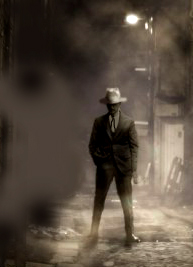Through the years, I worked several cases involving dead babies. Dead babies in murders and car wrecks. Frozen in cars. A rape. Beatings. But one was by far the weirdest and most ironic.
In Dallas, Texas, in the last few years, the city had started what they called a Baby Moses program. This program was where unwanted babies could be dropped off at fire stations and safe havens with no questions asked rather than be abandoned or killed. As I watched this news feature about the new program on television, my mind flipped off into the various dead baby cases I had worked in the past. Would the Baby Moses plan have helped? All had a snapshot stain in my brain of a telling moment or two. But … one sight, one night sticks in my mind.
That case involved what was probably one of the most ironic moments of my life because it was intertwined with the law, races, friendships, death, abortion, poverty, education, and, … well, so much it was too hard to categorize it all. I will just have to tell you about it, and I promise you won’t know what to do with it either.
I will start by recalling a guy named Sam Till for you. Many of our officers knew Sam Till. Sam lived in one of the projects or “poor” parts of our city; and, yes, it was the black part of town. Sam was a Vietnam vet and a retired, high-ranking Army NCO. He was a hard-working, ambitious person and ran two successful businesses. One was a large, citywide sanitation company; and the other was a well-established funeral home. On any given day, you might spot Sam supervising a garbage truck or even loading one on a route; or he might be giving a sermon at a funeral or driving the limo to a graveyard. He often came to crime scenes and collected the murder victims or scraped together what was left of accidents and suicides. Sam, like the other funeral home folks, would transport the bodies to the lab for autopsies if needed. Sam pitched in and did it all. Yes, Sam was a black guy.
One day, he and two workers saw a crazed man beating one of our officers and trying to take his pistol. Sam and the men jumped on the criminal and saved the day and the life of the already-unconscious officer. Sam was one of the locals who renovated his house and remained in the projects as many successful people did at that time. It was where he grew up! Where he wanted to be. He was even mildly involved in city politics and become involved with various good causes. He had several good sons who stayed out of trouble despite where they lived.
During my years as a patrolman or a detective, Sam supplied me with a lot of information about people he knew and suspected of crimes. I could go to him anytime for intel and gossip. He in turn would give me a phone call if he thought he’d discovered something. I think he knew I meant well for the community. He also knew that one of the most influential people in my life was a black Army NCO named Gaston; and, therefore, I mustn’t have been much of a racist. But racism was an overall problem back then—not as bad as before the 40s, 50s, and 60s, but still bad in the 70s and 80s.
I was a fairly “new” detective in 1981 or thereabouts (technically “new” as Texas goes as I was one in Army) . I was dispatched one chilly, early evening to meet a patrolman about a “family” problem in that part of the city. When I arrived at this sprawling, older home, a patrolman introduced me to a mother and father. The parents had become burdened with a problem, and neither they nor the patrolman knew what to do about it.
I first met the officer standing outside on the walkway and alone in the dusk.
“Hey, Hock,” the patrolman said. “We’ve got a problem here. I don’t know. I don’t know what to do with it.” The officer shook his head. He opened the front door and steered me in.
What is there not to know? I asked myself. Then I found out.
“Sandra has not been well, and her friends have told us something,” the mother spoke up. “Sandra was pregnant. And we had no idea.”
Pregnant? No idea? I saw the family color portrait on the wall. The parents were big people, and I mean really big people. Sandra, who looked to be about twelve years old in the picture, was a very, very big girl. We all sat in the living room.
“Her friend told us she was pregnant, and she had the baby,” the father said. “Sandra has not been to school in a week. She’s been throwing up … we just thought … we just thought she was sick.”
“Where is the baby?” I asked. “Is there a baby … yet?”
“No one knows,” the officer added.
“Sandra’s friend says she had the baby last night,” the distressed mother said.
“Where?”
“In there,” the father said, pointing to a bedroom.
“In there. Have you looked yet?”
“No, Mr. Hock, we were afraid to look.”
“Any … ahh … crying or…?” I asked with trepidation.
“No. Sandra is in there now. She won’t open the door.”
“Well, Mrs. Rankin, this is your house; and you can go anywhere in it. Let’s go,” I said.
We all stood, and the mother announced to Sandra that we were coming in. Sandra wouldn’t unlock the door, so I kicked it open. The bedroom was quite large, yet it was stacked and cluttered with … with just about everything you’d find in a teen’s room at the time times 10. Clean clothes. Dirty clothes. Furniture. Some stuff just stacked and other things grossly shoved and tossed everywhere, all atop a dirty carpet and a few pieces of old wooden furniture.
The mother started to explain to her why we were there. Sandra was now about 15 years old and still quite a large young girl, much larger than the photo I’d seen in the living room. It was possible to live around her and not detect a pregnancy? I guessed. Possible? As they talked, as she denied, I started prowling the room, lifting, and looking. And then I spotted a newborn baby pushed against the wall and buried in towels and clothes. Dead.
The parents knew I’d spotted something. I must have grunted or something. And in an instant, they charged over to look. They moaned and screamed.
“Don’t touch,” I said quietly. Regretfully. “Let’s all get out of this room.”
I left the house for my sedan radio. I requested our crime scene man, Russell Lewis, to come as well as my supervisor, Detective Sergeant Howard Kelly. Kelly called the house phone, and I ran down to explain the deal to him. He would contact a Juvenile Division Detective to take over any investigation, but that wouldn’t be until tomorrow unless something unusual happened. It was my mess until then. I hung up the phone. I knew the girl would eventually be charged for something that would probably be impossible to prove or disprove back then. Stillborn? Starved? Killed? Not too sure what the prosecutors would do. But my involvement would be temporary.
Now, I am trying to keep these details brief. Russell came. We snooped around, and he took pictures. Then he left. What came next is why I write this…
A funeral home was called to handle the dead body after we processed the crime scene. Sam Till’s was next on rotation and took the call and drove right over as soon as he could.
As soon as he could, because he was still in his garbage truck! Not the usual Till funeral van, as Sam was out delivering a truck to his office and was already nearby. Sam came in and was greeted by the parents as though they were longtime friends. He sat with them. He listened to them. Sympathized with them, as Sam always did so well. There would be a proper funeral. The family left the house for the police station, where I would later collect some preliminary statements.
Then it was just me and Sam. The baby would next go to his funeral home and as soon as possible be driven to the Dallas County Southwest Forensics lab for an autopsy. Sam had a white towel in his hands, and we walked to the bedroom and up to the baby. He was talking about something to me the whole way. I don’t remember what. He grabbed this baby by the ankles, and with it hanging upside down, we went back out on the street. While we discussed whatever it was, he laid the towel down on the passenger floorboard of the garbage truck and laid the baby atop the towel. We said goodbye.
He roared the garbage truck engine as I walked to my car and unlocked the car door, but I just stood there for a second, you know? What just happened? As he drove away in the garbage truck, I stood rather dumbfounded on the city street; and I knew I had just witnessed a most ironic, twisted, odd, social statement or situation. I mean, how can I describe this? The words “dead black baby born in secrecy and removed from the slums … in a garbage truck at night.” Is that how the report could read?
I have a vivid memory of that moment in my head. Standing on the street watching the garbage truck drive away. A memory, to this very day, I still just don’t know what to do with.
*********
Hock’s email is HockHochheim@ForceNecessary.com
This is excerpted from Hock’s book by Wolfpack Publishing Kill or Be Killed, True Crime – Detective Books. Click here

